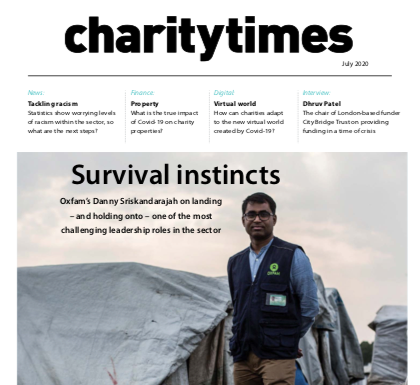The charity that maintains William Shakespeare heritage sites is considering job cuts as it tackles a £8.5m income loss due to the coronavirus pandemic.
In statement The Shakespeare Birthplace Trust has announced its plans to recover from the “severe financial impact” of the outbreak.
It has confirmed it will consult with staff “about an organisational structure which reflects the reduced scale of operations” after the loss of income through having to close the five sites it maintains.
The charity normally generates 98 per cent of its own income and is reliant on money reaised by the 850,000 people that normally visit its sites each year.
The closures of the sites have resulted in a “loss of 90% of income” said the charity.
The charity is to reopen Shakespeare’s Birthplace in Stratford-upon-Avon this summer, but its four other Shakespeare family homes and gardens will remain closed until at least spring 2021.
The reopening of Shakespeare’s Birthplace was made possible from a £900,000 Arts Council England emergency fund made earlier this month.
“However, with the enforced closure of our properties, shops, and catering venues in March, we will suffer a loss of £8.5 million of income for 2020, with a challenging financial picture for 2021,” said Tim Cooke, chief executive of the Shakespeare Birthplace Trust.
“In addition to this loss the Trust itself is investing significant cash this year in maintaining its limited operation.
“While social distancing is quite rightly in place, while visitor confidence and behaviour are understandably uncertain and while the future impact of Covid is unknown, reopening all of our historic properties would cost more than keeping them closed.”
He added: “Like many organisations operating in the culture, tourism, hospitality and retail arenas the Trust has to look at its costs. Regrettably, this will mean a reduction to our workforce and the Trust is in consultation with its employees to look at options to reduce employee numbers, wherever possible through a voluntary redundancy scheme, and changes to working arrangements.
“We have no option but to act and to seek the support of others to ensure that our charity is able to survive the impact of Covid and build a recovery plan.”
Latest News
-
2025: A year in the news
-
Funder launches initiative to improve charity board diversity
-
National Trust's former legal counsel takes senior role at charity regulator
-
2025: The long-reads
-
Government ‘slow to tweak’ consumer law to protect charities, MP warns
-
City of Culture charity to be supported for further two years
Charity Times video Q&A: In conversation with Hilda Hayo, CEO of Dementia UK
Charity Times editor, Lauren Weymouth, is joined by Dementia UK CEO, Hilda Hayo to discuss why the charity receives such high workplace satisfaction results, what a positive working culture looks like and the importance of lived experience among staff. The pair talk about challenges facing the charity, the impact felt by the pandemic and how it's striving to overcome obstacles and continue to be a highly impactful organisation for anybody affected by dementia.
Charity Times Awards 2023
Mitigating risk and reducing claims

The cost-of-living crisis is impacting charities in a number of ways, including the risks they take. Endsleigh Insurance’s* senior risk management consultant Scott Crichton joins Charity Times to discuss the ramifications of prioritising certain types of risk over others, the financial implications risk can have if not managed properly, and tips for charities to help manage those risks.
* Coming soon… Howden, the new name for Endsleigh.
* Coming soon… Howden, the new name for Endsleigh.
Better Society

© 2021 Perspective Publishing Privacy & Cookies










Recent Stories